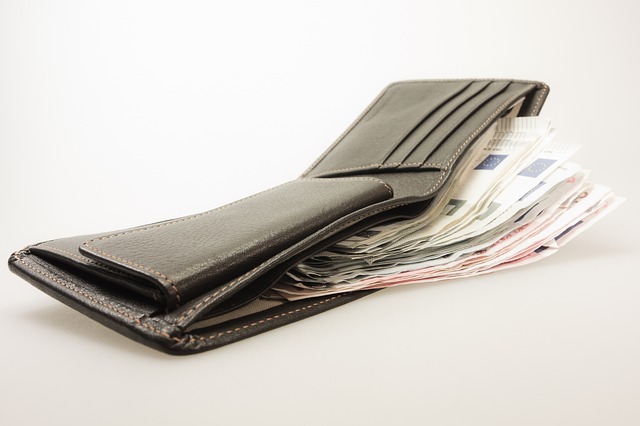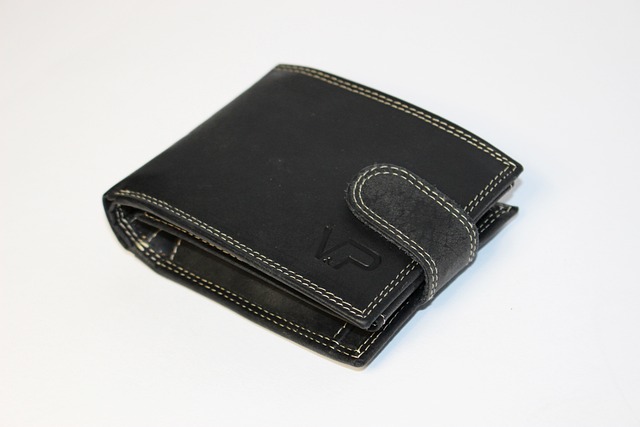The Ultimate Guide to Crypto Wallets
Author: Jameson Richman Expert
Published On: 2025-01-30
Prepared by Jameson Richman and our team of experts with over a decade of experience in cryptocurrency and digital asset analysis. Learn more about us.
As cryptocurrencies continue to gain traction in the financial world, understanding the ins and outs of crypto wallets has become essential for anyone looking to dabble in digital currencies. Whether you are a seasoned trader or a curious newcomer, this guide will help you navigate the complexities of crypto wallets, their various types, advantages, disadvantages, and how to choose the right wallet for your needs. Let's dive right in!

What is a Crypto Wallet?
A crypto wallet is a tool that allows you to store, send, and receive cryptocurrencies. Unlike a traditional wallet that holds physical cash, a crypto wallet does not store actual coins. Instead, it houses the public and private keys needed to interact with cryptocurrencies on a blockchain. These keys are essential for accessing your digital assets.
Types of Crypto Wallets
There are several types of crypto wallets, each designed to meet different user needs. Understanding these differences is crucial in making an informed choice.
1. Hot Wallets
Hot wallets are connected to the internet, making them convenient for regular transactions. Popular hot wallets include:
- Web Wallets: Accessible through a web browser, these wallets are user-friendly and ideal for beginners.
- Mobile Wallets: Apps that you can download on your smartphone, offering on-the-go access to your crypto assets.
- Desktop Wallets: Software installed on your computer, providing more control over your private keys compared to web wallets.
2. Cold Wallets
Cold wallets are offline storage options that protect your keys from online threats. They are more secure and suitable for long-term storage. Cold wallets include:
- Hardware Wallets: Physical devices that securely store your private keys offline.
- Paper Wallets: A simple way to store your keys on paper, but they require careful handling to avoid damage or loss.
Choosing the Right Crypto Wallet
When it comes to selecting a crypto wallet, several factors need to be considered:
1. Security
Security should be your top priority. Look for wallets with strong encryption and multi-signature features. Cold wallets are generally more secure than hot wallets.
2. User Experience
The wallet's interface should be user-friendly, especially for beginners. A complicated interface can lead to mistakes, such as sending funds to the wrong address.
3. Supported Cryptocurrencies
Ensure the wallet supports the cryptocurrencies you intend to trade or hold. Some wallets cater to specific coins, while others, like hardware wallets, support a wide array of digital assets.
4. Backup and Recovery Options
Look for wallets that provide backup features. The ability to recover your wallet in case of loss is crucial. Most wallets offer seed phrases that allow you to restore access to your funds.
5. Community and Support
Check if the wallet has an active community and responsive customer support. This ensures you have resources to turn to if you encounter issues or have questions.

Best Crypto Wallets of 2023
Now that you know how to choose a crypto wallet, let’s explore some of the best options available:
1. Ledger Nano S
The Ledger Nano S is a popular hardware wallet known for its security features. It supports a range of cryptocurrencies and is user-friendly, making it suitable for both beginners and experienced users.
2. Trezor Model One
Trezor Model One is another highly recommended hardware wallet that supports multiple cryptocurrencies. Its simple interface and robust security measures make it a go-to choice for long-term storage.
3. Exodus
Exodus is a user-friendly desktop and mobile wallet that supports various cryptocurrencies. It has a built-in exchange feature, allowing users to trade assets easily.
4. Trust Wallet
Trust Wallet is a mobile wallet owned by Binance. It supports a wide range of cryptocurrencies and provides users with full control over their private keys. It also has an intuitive interface.
The Importance of Keeping Your Wallet Secure
Once you choose a crypto wallet, securing your digital assets should be your primary focus. Here are a few best practices for keeping your wallet and funds secure:
1. Use Strong Passwords
Always use complex and unique passwords for your wallet accounts. Avoid common words or phrases, and consider using a password manager to keep track of your credentials.
2. Enable Two-Factor Authentication (2FA)
If your wallet offers 2FA, be sure to enable it. This adds an extra layer of security by requiring a second form of identification when accessing your wallet.
3. Regularly Update Your Software
Keeping your wallet software updated ensures you have the latest security features and protections against vulnerabilities.
4. Be Cautious of Phishing Attacks
Always double-check URLs and links before entering your wallet credentials. Phishing attacks are widespread in the crypto space, and scammers often create fake sites to steal your information.
Future Trends in Crypto Wallets
The landscape of crypto wallets is continually evolving. Here are some trends to watch:
1. Integration of Decentralized Finance (DeFi)
With the rise of DeFi platforms, we can expect wallets to increasingly integrate features that support lending, borrowing, and trading directly from the wallet interface.
2. Enhanced Privacy Features
As privacy becomes more important to users, wallets with advanced privacy features, such as coin mixing and privacy-focused coins, will gain popularity.
3. Multi-chain Wallets
As various cryptocurrencies continue to thrive, wallets that support multiple blockchains will become more sought after, allowing users to manage a diverse range of assets in a single location.

Final Thoughts
Choosing the right crypto wallet is crucial for the safe management of your digital assets. By understanding the types of wallets available, the factors to consider when selecting one, and implementing secure practices, you can enjoy the benefits of cryptocurrency with peace of mind.
For those looking to trade cryptocurrencies, consider creating an account on Binance, one of the largest exchanges globally. You can sign up through this link: Binance Registration. Start exploring the world of crypto trading today!
Remember, whether you’re holding Bitcoin, Ethereum, or any other altcoin, staying informed and secure is the key to a successful crypto journey!